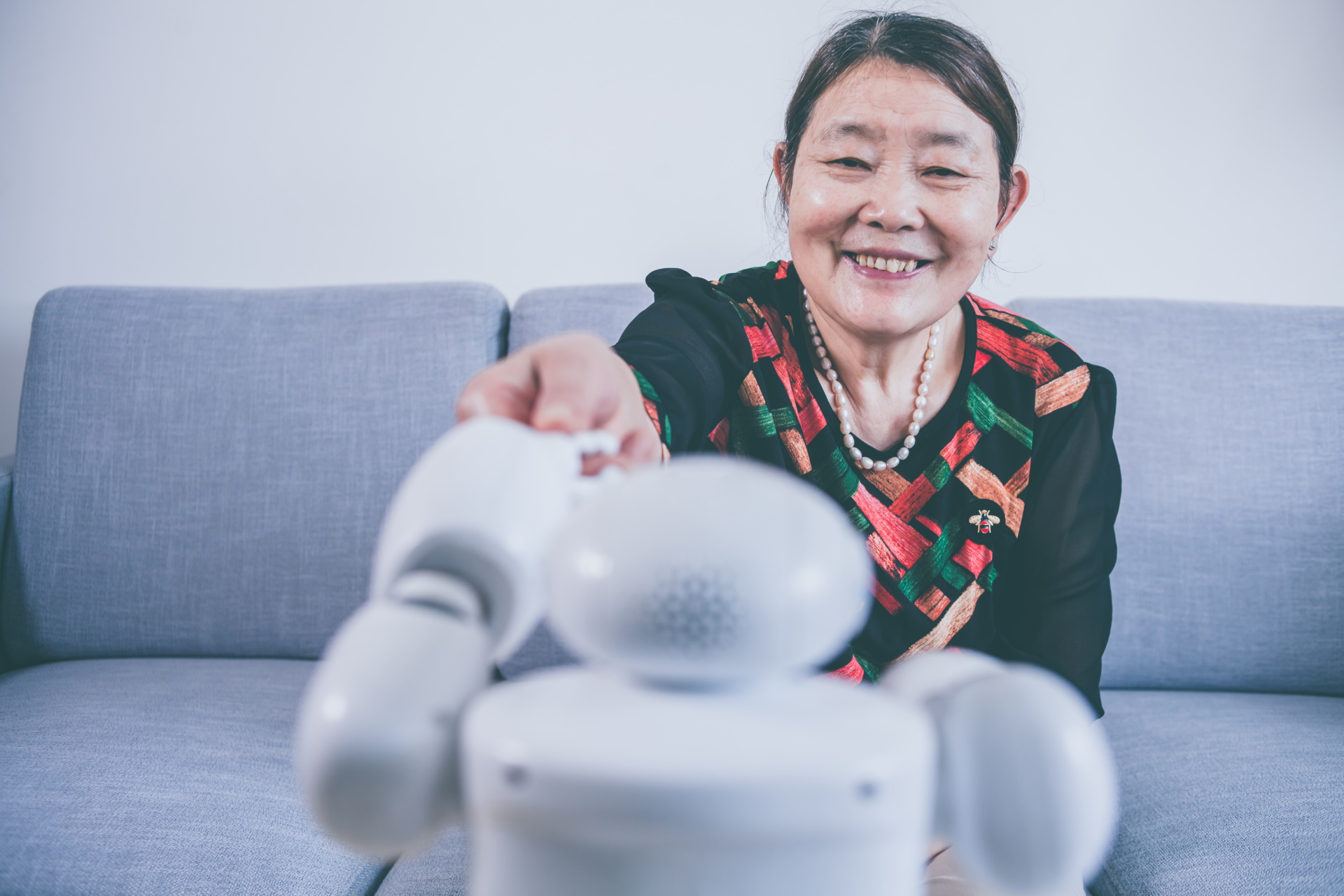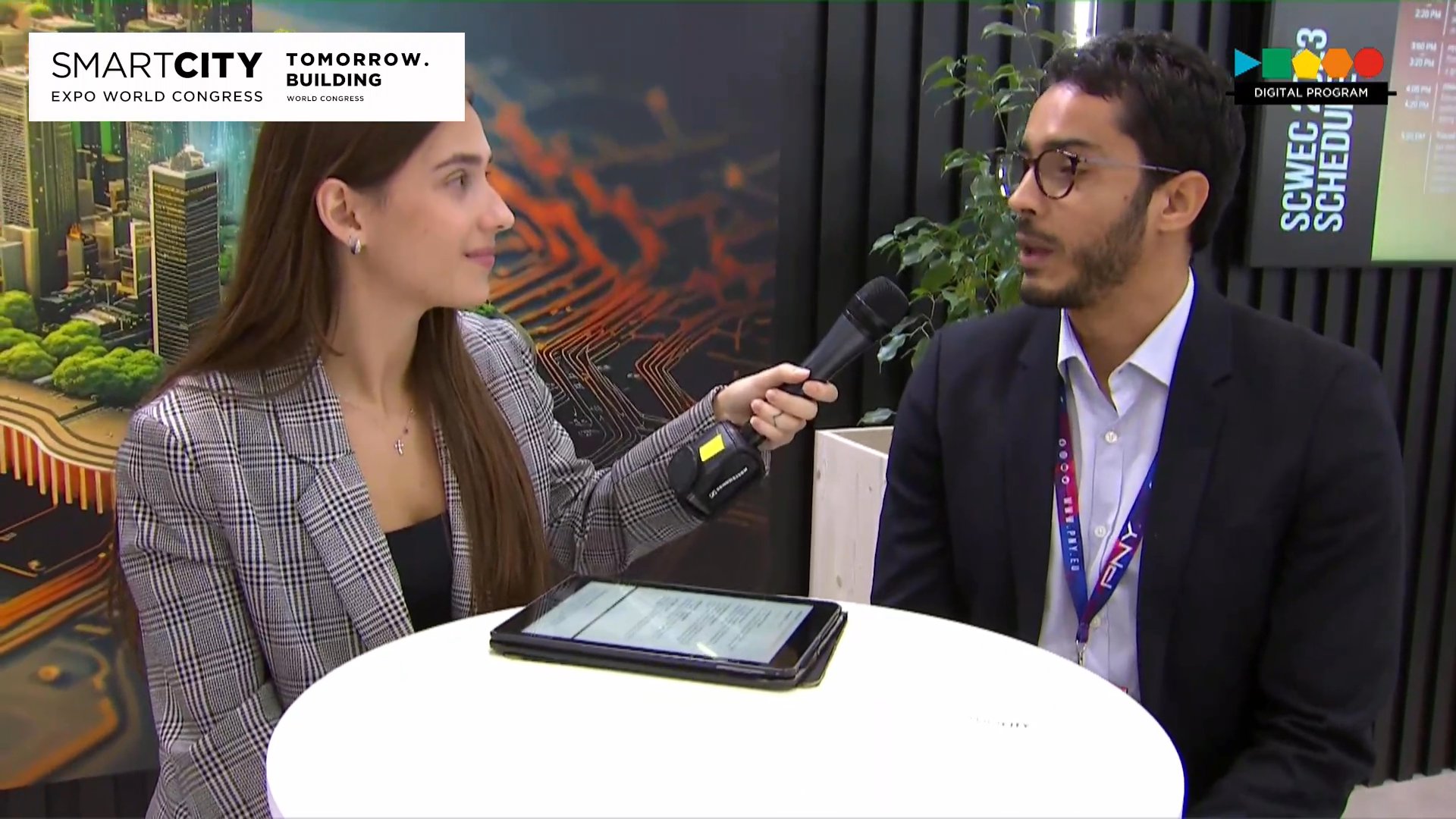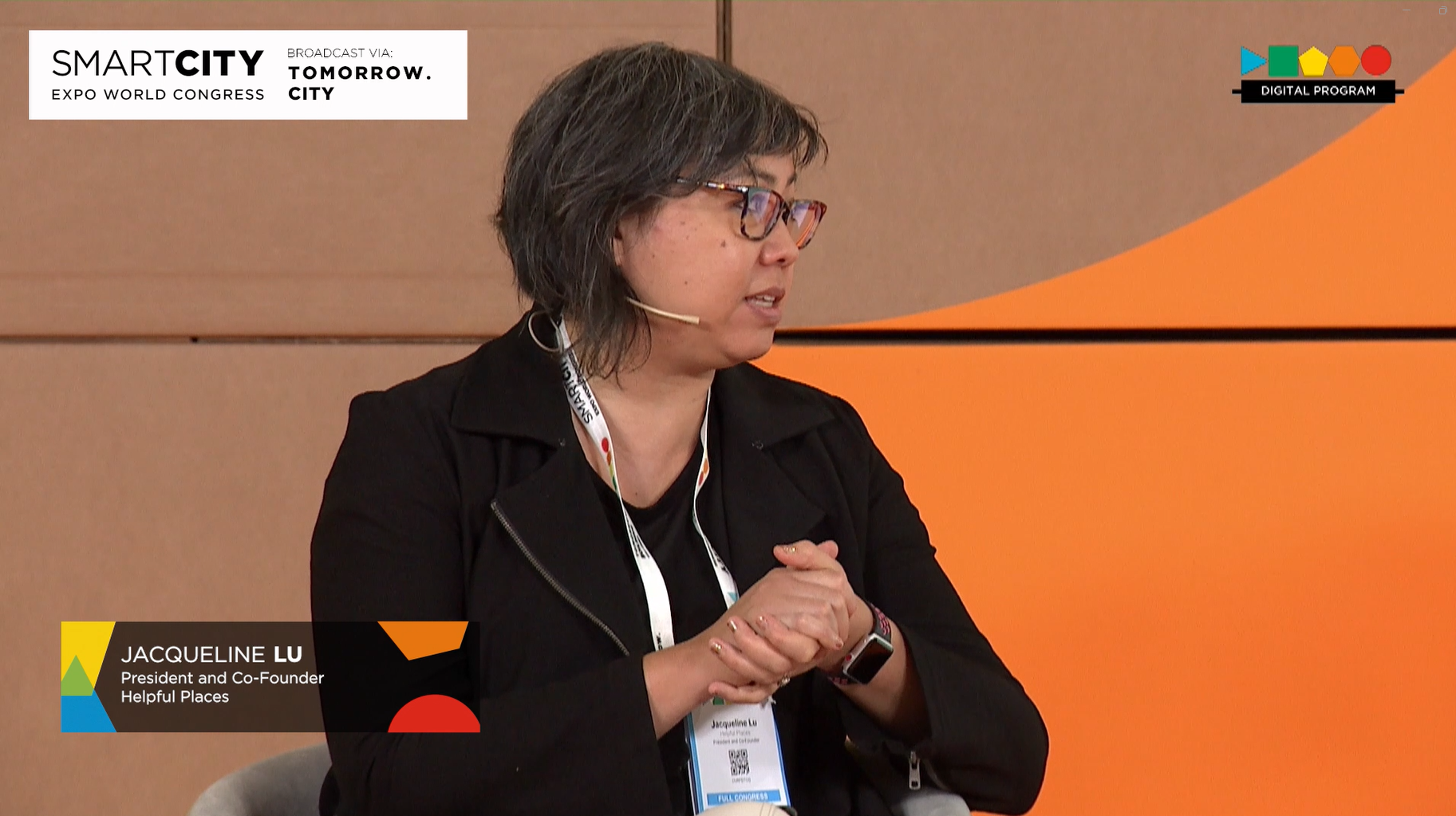Although it has often been said that elderly people and technology do not get along, it is more an issue of accessibility than interests or preferences. There are, in fact, many devices available that have been designed specifically for seniors, devices that can make their day-to-day activities easier and safer, without affecting their independence.
An ageing society: a change that requires an urgent response

When societies reach a certain level of stability, life expectancy tends to increase and the number of children per family decreases. This means we are now seeing a significant inversion of the classic population pyramid. In fact, over the last 50 years, the percentage of people aged 65 years or over has practically doubled, going from 5% in 1960 to over 9.3% today. And this figure is even greater in more economically advanced countries.
As a result of this, the active aging concept has become an increasingly popular topic of conversation. The WHO defines it as a process designed to optimize physical, social and mental wellbeing opportunities, with the aim of extending healthy life expectancy, productivity and quality of life for all people as they age. It is based on four pillars: physical activity, mental wellbeing, participation in society and healthy diet.
Apart from beneficial personal decisions, this social transformation also involves making changes to numerous other aspects. For example, a new population model brings with it challenges in terms of urban design, with solutions already being implemented today. Age-friendly cities need to rethink the way in which their transport, services or housing function. Areas in which the use of technology is gaining importance.
9 examples of technology for seniors

Although "new technologies" and "seniors" are not concepts that are normally associated with one another, advances in the sector may also be of significant help. This was one of the key topics of the International Day for Older Persons 2021, held on October 1. Antonio Guterres, Secretary-General of the United Nations, is of the opinion that "if older persons can access new technologies, learn them and use them, they will be better equipped to help achieve the Sustainable Development Goals."
Statistics clearly reflect that the older generations are not so adverse to technology as one may think. Spain is a good example of this: if in 2013 only 21.9% of the population between the ages of 65 and 74 years had used the internet within the three months prior to the survey by the National Statistics Institute (INE), in 2018, that percentage had increased to 49.1% and, just one year later, this figure exceeded 63%. The number of projects designed to ensure the digital inclusion of older adults is partly responsible for this.
This gradual change requires the development of initiatives in the future, but there are already a whole host of electronic devices intended to make everyday activities easier for our seniors, making life more convenient and safer. We are already using some of these devices, but they also offer a number of other interesting features. Here are some examples.
Phones for the elders
There is already a large choice of "phones for seniors" available, with larger keys and buttons, simplified interfaces and emergency response buttons. They make it easier for seniors to access technology and ensure quicker and more efficient access to medical assistance.
Voice assistants

Smart devices are already firmly established in our households. And although they may seem like lifestyle devices designed for younger people, voice assistants integrated into smartphones and smart screens and speakers allow seniors to communicate more efficiently. For example, they can make calls without physically accessing a phone (which may be useful in emergencies), tricky instruments such as climate control devices can be operated without touching them and these devices may also help to combat loneliness.
Activity trackers

Popular activity trackers were devised to offer information about our fitness, but they can be useful in other areas too. Health data such as heart rate or blood pressure may help prevent accidents and even facilitate a rapid diagnosis. These types of devices are particularly useful for seniors who are still highly active, allowing them to set themselves fitness goals.
Fall detection sensors
Some smart watches are equipped with an accelerometer that can detect a fall. In the event of a fall, they automatically call the emergency services or a trusted contact number. If a person cannot wear a watch, there are als specific detectors available with similar functions.
Clocks and watches for seniors
As with smartphones, there are also clocks available for seniors. Desktop versions include clocks designed distinctly for people with dementia, which offer inbuilt reminders or day-to-day information, with a simple and visual display. These devices can also provide medication reminders.
Noise canceling headphones
Noise canceling technology is available in numerous headphones. Producing a counter wave, they are capable of cancelling background noise so we can just listen to music or block out external sounds. Certain models can even pick up voices while ignoring background noise, which work in a similar way to medical hearing aids, without necessarily reaching the same level.
Cleaning robots
Seniors may find it difficult to clean the homes due to their physical limitations. If they are not able to have external help, cleaning robots can be of great help in maintaining an elderly person’s home. These devices can move around the entire house without any instructions of any sort, and can even be activated through voice assistants if they cannot be physically operated.
Tracking devices
Tracking devices are very thin devices equipped with Bluetooth technology that can be attached or adhered to other objects in order to locate them. These small devices can be used as keyrings or kept in a bag, causing an alarm to be triggered on a user’s smartphone if the user moves out of range of the object, reminding them that they are about to leave the house without their keys, medication or glasses.
Connected cameras
Installing security cameras in homes provides extra peace of mind for seniors, who may be more vulnerable to theft and even scams. Connected surveillance devices, equipped with GPS technology, can also offer greater security for family members or caregivers, who, with the senior’s consent, can monitor the elderly person’s wellbeing remotely.
From the design of a basic product to state-of-the-art technology: an inclusive future

Of course, there are other less technologically advanced devices that can also make life easier for an increasingly aging population. From hot water dispensers to avoid having to boil water, to portable speakers to hear the TV better, there are plenty of solutions available.
The age-tech sector is clearly on the rise, not just aimed at improving quality of life for people with mobility problems, but also improving their mental health. For example, there are cognitive stimulation apps with exercises aimed at brain injury rehabilitation,amazing virtual reality experiences and robotic pets to reduce loneliness.
Some studies claim that the common concept of seniors and technology not getting along is condescending and partly incorrect. Providing them with the capacity to enjoy technology and offering them certain strategies is key; not just for seniors but society as a whole.
Images | Nastasic/iStock, mediaphotos/iStock, FG Trade/iStock, wonry/iStock, Six_characters/iStock, Huy Phan






















































